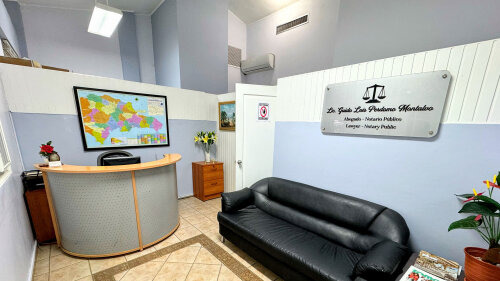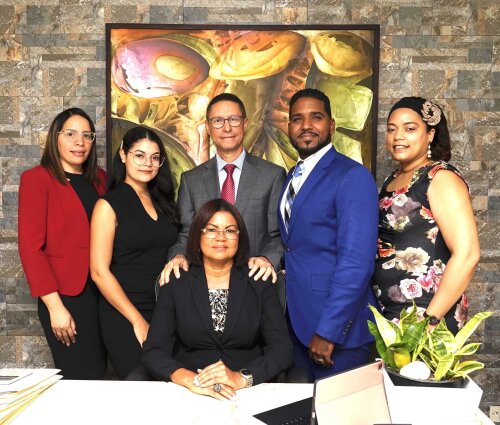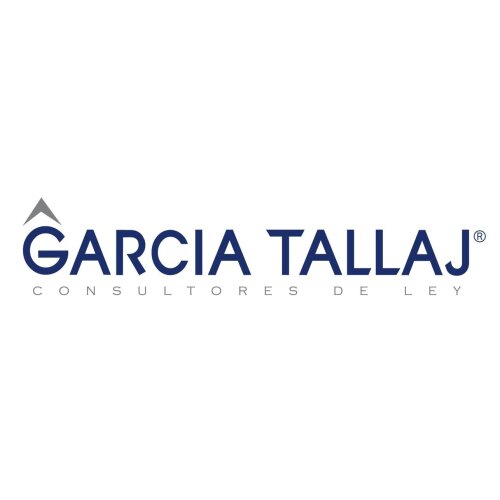Best Class Action Lawyers in Sosua, Cabarete
Share your needs with us, get contacted by law firms.
Free. Takes 2 min.
List of the best lawyers in Sosua, Cabarete, Dominican Republic
About Class Action Law in Sosua, Cabarete, Dominican Republic
Class action law refers to legal proceedings where a group of people with a shared interest or grievance join together to bring a lawsuit against an individual, company, or institution. In Sosua and Cabarete, as in the rest of the Dominican Republic, the legal system is based on civil law principles with local adaptations. Class action lawsuits, known as "acciones colectivas," are still relatively new and developing in the Dominican Republic. They allow groups who have suffered similar damages, such as consumers, employees, or community members, to pool their claims for more efficient resolution and shared legal costs.
Why You May Need a Lawyer
There are several situations in Sosua and Cabarete where you might require legal help regarding class action matters. These include:
- Consumer rights violations by companies, such as defective products or false advertising.
- Environmental harm affecting entire communities, such as pollution or unsafe construction practices.
- Employment issues where a large group of workers has been denied fair compensation or workplace rights.
- Housing disputes involving building defects or illegal developments impacting many property owners or tenants simultaneously.
- Any instance where a group has suffered similar harm and seeks justice more efficiently and powerfully than would be possible on an individual basis.
A lawyer can assess your case, determine if a class action is appropriate, and guide the group through the complex legal steps involved in these types of lawsuits.
Local Laws Overview
The Dominican legal framework acknowledges class actions but regulates them through specific legislation and procedural codes. Key aspects include:
- The Consumer Protection Law (Ley No. 358-05) provides mechanisms for group claims on consumer issues.
- The Environmental Law (Ley No. 64-00) permits collective claims for environmental protection and damages.
- Civil Procedural Code contains guidelines for aggregating similar claims and managing large group lawsuits.
- Class actions must be certified by a court, verifying the plaintiff group has common interests and damages.
- Court approval is required for any class settlement or resolution to ensure fairness for all affected parties.
Judicial procedures may differ from those in other countries, with specific requirements for representing large groups, publishing legal notices, and managing settlement funds. It is crucial to consult with a local attorney who understands these nuances.
Frequently Asked Questions
What is a class action lawsuit in the Dominican Republic?
A class action lawsuit (acción colectiva) is a legal case where a group of people with similar complaints join together to sue a person or company. This is often used for consumer, environmental, or labor disputes.
Can foreigners be part of a class action in Sosua or Cabarete?
Yes, both residents and foreigners present in Sosua or Cabarete who have suffered from the same unlawful practice can be part of a class action, provided they share common legal interests.
How do I know if my problem qualifies for a class action?
If your issue affects a group of people in the same way as it affects you, and it arises from the same source or practice, it may qualify for a class action. A lawyer can evaluate your specific situation.
What are the benefits of participating in a class action?
Class actions allow individuals to combine resources and share legal costs, increasing their bargaining power and the likelihood of a resolution. It is often more effective than pursuing individual claims.
What kind of compensation can I expect?
Compensation depends on the harm suffered. It may cover financial losses, damages, restitution, or specific corrective actions by the company or entity at fault.
Who can lead a class action in the Dominican Republic?
A representative plaintiff, or lead plaintiff, is chosen from among the group. This person works closely with legal counsel and acts on behalf of all group members.
How do courts handle class actions in Sosua and Cabarete?
Local courts must certify the group and approve how the lawsuit proceeds. The process involves filing documents, notifying potential class members, and sometimes publishing public notices to reach all affected individuals.
What is the role of the government in class actions?
Government agencies like consumer protection offices and environmental authorities can initiate or support class actions, especially where public interests are involved.
Can I opt out of a class action?
Yes, affected individuals are usually given the chance to exclude themselves from the class group if they prefer to pursue their claims independently.
How do I join a class action lawsuit?
You can join a class action by contacting the legal team or representative plaintiff organizing the case. Your information will be included, and you will be updated on the lawsuit's progress.
Additional Resources
For those in Sosua and Cabarete seeking information or assistance regarding class actions, the following may be helpful:
- National Institute for the Protection of Consumer Rights (Pro Consumidor)
- Ministry of Environment and Natural Resources (Ministerio de Medio Ambiente)
- Local Bar Associations in Puerto Plata Province
- Public Defender's Office (Defensor del Pueblo) for guidance on legal rights and group claims
- Local non-governmental organizations focusing on consumer and environmental matters
Next Steps
If you believe you have grounds for a class action in Sosua, Cabarete, or the wider Dominican Republic, consider the following course of action:
- Gather all relevant documents and evidence that support your case.
- Identify if others share the same legal issue as you.
- Consult with a qualified local attorney experienced in class action law to evaluate your situation and discuss strategic options.
- Ask your lawyer to explain the certification process, group representation, and potential outcomes.
- Stay informed and participate in group meetings or decision-making as the case progresses.
Acting promptly increases your group’s ability to preserve evidence and protect your collective rights. A legal expert can help ensure each step is handled correctly in accordance with Dominican law.
Lawzana helps you find the best lawyers and law firms in Sosua, Cabarete through a curated and pre-screened list of qualified legal professionals. Our platform offers rankings and detailed profiles of attorneys and law firms, allowing you to compare based on practice areas, including Class Action, experience, and client feedback.
Each profile includes a description of the firm's areas of practice, client reviews, team members and partners, year of establishment, spoken languages, office locations, contact information, social media presence, and any published articles or resources. Most firms on our platform speak English and are experienced in both local and international legal matters.
Get a quote from top-rated law firms in Sosua, Cabarete, Dominican Republic — quickly, securely, and without unnecessary hassle.
Disclaimer:
The information provided on this page is for general informational purposes only and does not constitute legal advice. While we strive to ensure the accuracy and relevance of the content, legal information may change over time, and interpretations of the law can vary. You should always consult with a qualified legal professional for advice specific to your situation.
We disclaim all liability for actions taken or not taken based on the content of this page. If you believe any information is incorrect or outdated, please contact us, and we will review and update it where appropriate.











